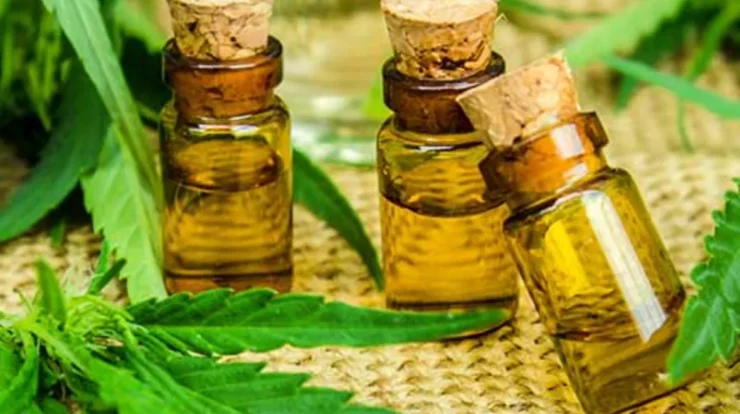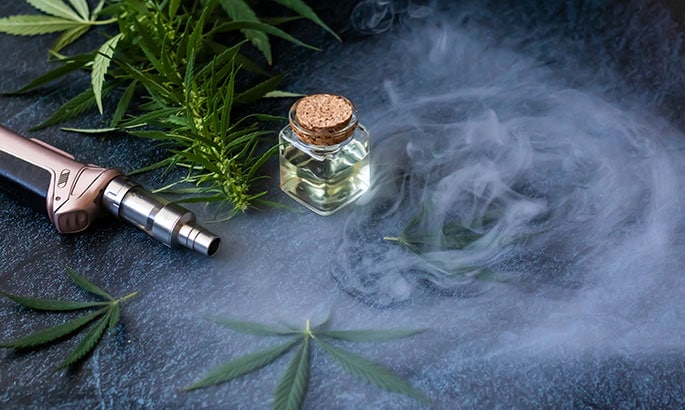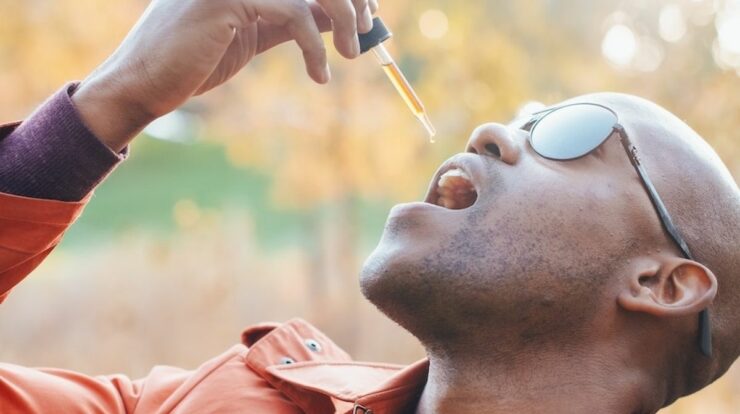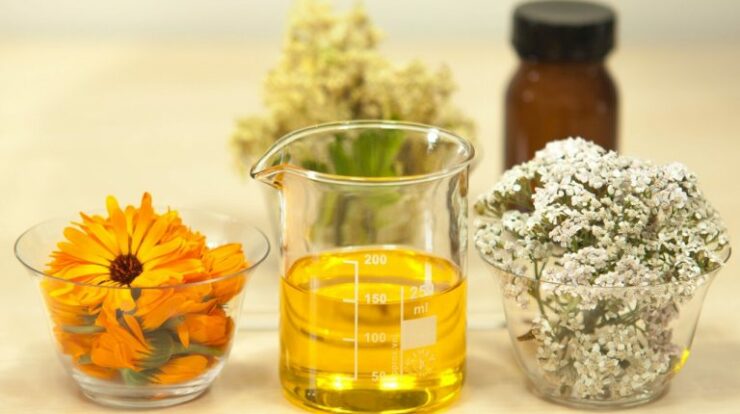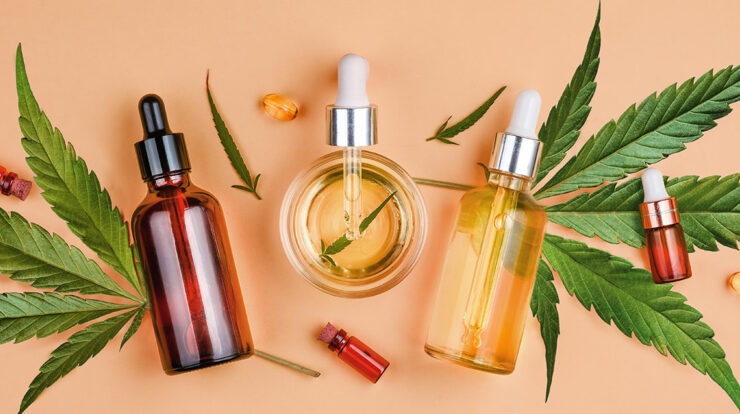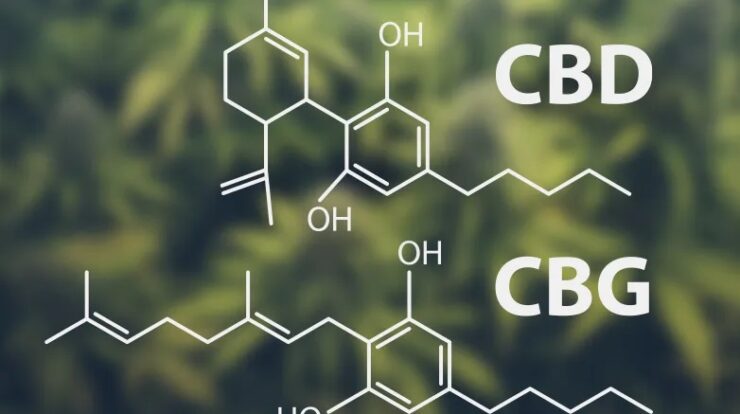
We have mostly heard about CBD or THC, but we have forgotten one effective cannabinoid that is, CBG as Cannabigerol. So, what is CBG? And its role in daily life? Well, here we will discuss everything about CBG, its benefits, uses, side effects, and finally, how it is different from other cannabinoids. Cannabigerol (CBG) is present in cannabinoids in the plant of Cannabis. In both hemp and marijuana, cannabigerol or CBG can be present in small quantities. A small cannabinoid, it has low concentrations of the majority of cannabis strains relative to THC or CBD. In comparison to THC, CBG does not have psychoactive effects, so it does not make you feel high. It occurs both in some synthetic varieties of hemp and in other, stronger strains of marijuana. CBG functions by affecting our organism’s endocannabinoid system. The Endocannabinoid Mechanism consists of a diverse set of receptors, endocannabinoids, and enzymes (CB1 and CB2 receptors). Endocannabinoids are compounds formed by our bodies. They are related to receptors CB1 and CB2. Its role is to assist in controlling many of our physiological functions and maintain the balance within us.
CBG Benefits
CBG has been shown to be acting on extremely, specific physiological mechanisms and issues and positive outcomes for drug use. Following are some benefits of CBG in the medical field:
- The endocannabinoid receptor in the eye structures is prevalent, and it is observed that CBG is effective in the management of glaucoma because the intraocular pressure is reduced. It is a strong vasodilator and boots neuroprotective.
- CBG has been found effective in animal studies with the mouse to suppress inflammatory bowel diseases.
- In a recent study, CBG was shown to protect the neurons of mice that are marked by brain degeneration of nerve cells from Huntington’s disease.
- CBG is an effective antibacterial agent, particularly to treat microorganisms tolerant to the several classes of drugs of Staphylococcus aureus (MRSA). Topical cannabis formulations were effective in infections of the skin, but scientists did not know the chemical composition of the plant at this time.
- Researchers in a recent study demonstrated the very useful appetite stimulant in rats for a form of CBG purified for delta 9 THC removal. The findings could lead, in late-stage cancer and other conditions, to a new non-psychotropic therapeutic alternative for cachexia, muscle waste, and extreme weight loss.
- CBG tested the best effect on inhibiting muscle contraction in a study investigating the effects of cinquain cannabinoids on bladder dysfunctions so that it can be a future instrument for preventing bladder disorders.
- CBG prevents the absorption of GABA and could lead to a relaxation of muscles, stress, and a relaxed and peaceful feeling in the body and the brain.
Scientists are optimistic about these initial CBG findings and encourage potential studies into various diseases with CBG, or CBG, alone and with other cannabinoids and therapies. Since it is psychotropic, CBG has a promising range of possible uses not only as an analgesic, psoriasis, and antidepressant for the problems described above.
Side effects of CBG
With many benefits, it also has many side effects that are mentioned as follows:
- For better sleep is one of the most popular reasons to take CBG. Some may feel that the use of a cannabinoid can have a welcoming side effect that is tiredness or dizziness. However, extremely high doses of CBG can cause severe tiredness and fatigue.
- Large doses of CBG may result in diarrhea, possibly because the body is informed by the digestive system, that the high volume of the compound is not needed. When eating CBG in the form of an edible, the risk of diarrhea is likely to be higher since it helps CBG to, directly communicate with the digestive tract.
- Since drinking cannabis, one side effect is dry mouth. In our salivary glands, there are cannabinoid receptors, so cannabis use can temporarily affect their ability to produce saliva. If you have a dry mouth after the use of CBG, you should drink water, which is helpful.
- Whenever a person uses cannabis, there might be changes in appetite. Some cannabis compounds appear to minimize appetite, while others may increase appetite. How your appetite takes effect of CBG can vary. In other words, you can either consume more at high doses of CBG or feel like you have changed your appetite into little in eating. Once the CBG is not working in the body, this should be achieved.
- After taking CBG at a high dose, some people have documented improvements in weight over a fairly long time. We think that this possibly is related rather than metabolism to the possible effects of CBG on appetite.
Legality of CBG
CBG is legal at the United States federal level, given the hemp is the source. Hemp and plant derivatives were legalized in the 2018 Farm Bill transition. The law included provisions clarifying the validity of all goods extracted from hemp, including CBG oil. All substances derived from marijuana remain federally illegal. About 30 countries have introduced their own marijuana use laws for CBG oil extracted from marijuana. While the availability of CBG oil is limited due to CBG levels, CBG is present in fully legally available hemp-derived oils such as CBD oil. Though CBG oil is not commonly used.
CBG VS CBD
CBG and CBD are both derived from Cannabis but their scope of effect and usage are different from each other due to some factors. So, here we are going to discuss the main differences between them as mentioned below:
- CBG helps to grow CBD because they are separate compounds in the cannabis plant though they are both cannabinoids. They serve various purposes and, despite a possible pharmacological overlap, can help to treat various conditions.
- CBG and CBD are both considered non-psychotropic, but they can not influence your mind in such a way that your daily work and mental clarity, are inhibited by them. However, they will change the mind so that anxiety and depression can be alleviated. Thus, maybe a better term would be non-intoxicating so that THC will not get you high.
- The intoxication or poison can be caused by consuming cannabis that has a high concentration of CBD and CBG. CBG can obviously be present in cannabis, but possibly not in sufficient amounts to make a difference.
- Your appetite can also increase CBG. It is also different from other cannabinoid components, that can contribute to weight loss. CBG labs of animals like rat’s hunger, which is not CBD-based behavior.
It is also important to point out that when considering CBG vs CBD they seem to have a different impact on the endocannabinoid system. As indirect agonists, CBG and CBD both tend to eliminate CB1 receptors and to be positioned within the receptors imperfectly so as not to bind other chemical messengers. Unlike CBG, however, CBD does not seem to be directly connected to CB2 receptors like CBG in an endocannabinoid system.
All the cannabinoids in the plant, including CBG and CBD, are found in full-spectrum cannabis oil products. The use of a product that contains the complete spectrum of cannabinoids available from hemp in comparison to isolated CBG could prove more useful due to the entourage effect, that is to say, the possible improving impact when the full spectrum of cannabinoids and other cannabis compounds is ingested in whole-plant cannabis oils.

